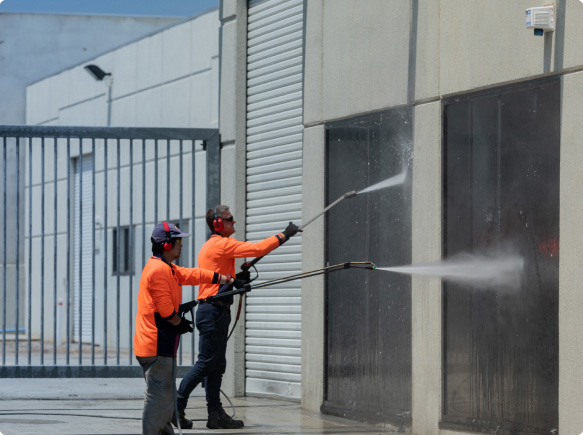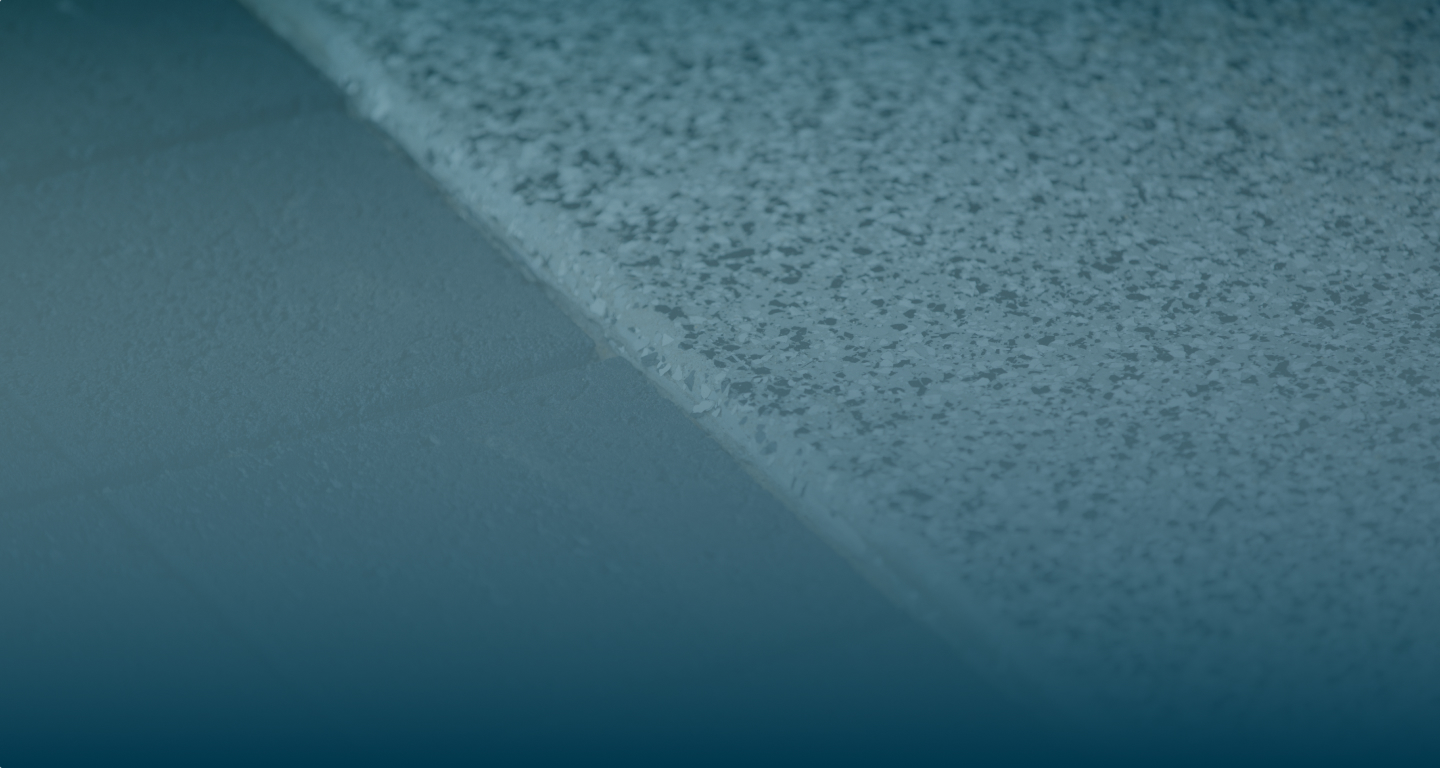Pressure washing is useful in residential and commercial settings. There are several types of pressure washer available on the market: electric, gas-powered, residential, industrial, and of course, hot and cold. What is the main difference between a hot and cold pressure cleaning machine, and which is right for your job?
Cold water pressure washing
Cold water pressure washers are a lower-cost option compared to hot water pressure washers. They are usually smaller in size and require less maintenance. If you’re thinking to use hot water in the machine DON’T! A cold water pressure washer cannot handle high temperatures, which can damage the pump.
Cold water pressure washing can be useful for a range of applications, such as removing mud, sand or dirt from a driveway. Where they often fail to perform is on oil and grease stains, and more caked-on grime. Some cold water pressure washing machines allow an operator to add a detergent, which can help on oily surfaces but are still generally less effective.
Lastly, patience is required with cold water. It generally takes 35% longer for cold water pressure cleaners to do their job compared to hot water alternatives.
Cold water pressure cleaning can be useful where grease is not an issue, such as:
- Removing cobwebs from awnings
- Rinsing exterior building walls
- Washing away general dirt and sand
- Window washing
- Unsealed wooden surfaces like decking
Hot water pressure washing
Hot water pressure washing is recommended for greasy or oily surfaces, as well as many other applications. From automotive parts to food equipment, to cleaning barbecue stains on a patio, hot water washing is the far superior option. It’s just science.
Heating grease weakens its molecular bonds so that they are only loosely attached and behave like a liquid rather than a solid. Adding detergent to the equation assists the hot water pressure washing process. According to Kärcher, an international manufacturer of cleaning equipment: every 10°C increase in temperature accelerates the chemical processes and halves the reaction times.
Hot water pressure washers are generally more expensive and less portable than their cold water cousins, but there are many benefits to outweigh the cons.
Best uses for hot water pressure washers
- Grease and oil removal
- Killing weeds/moss in brickwork and concrete
- Removing lichen and baked in dirt
- Eliminate up to 99% of the bacteria and germs using steam
- Steel, stone, brick, tile and wood (with appropriate temperature control)
What products should I use with a pressure washer?
A pressure washer will ship with a list of manufacturers approved products, which should be followed to avoid damage to the machine or the surface being cleaned. Usually, these are liquid detergents with a surfactant quality. Some higher-end hot water pressure washers may also have the capacity for antiviral or antimicrobial solutions, paint, or even liquid wax for protecting a car’s paintwork.
Detergents do a lot of the heavy lifting with oily stains. But much like you wouldn’t choose to do the dishes with cold water; hot water makes it less of a chore. While sometimes used interchangeably, detergent is different from soap. Soap in its most basic form is usually made from a natural fat mixed with an acid. Detergents are synthetic, human-made derivatives.
Detergents are also surfactants (surface active agents) which reduce water’s surface tension and improve water’s ability to spread evenly. The head of the molecule is attracted to water (hydrophilic), and the tail is attracted to grease or dirt (hydrophobic). When the detergent molecules meet oils, fats or grease, the tails are drawn into it, but the heads prefer the water. This helps detergents attach to dirt, break it up and let the water wash it away.
It’s also the reason why detergents are effective in handwashing to prevent the spread of diseases such as Coronavirus.
Should I hire a professional pressure washer?
Using hot water is not without its risks. The combination of extreme pressure and water reaching up to 155° Celsius in temperature means great care needs to be taken in operating a hot water pressure washer. Combined with the chemicals which may be involved, there are many reasons why hot water pressure washing should be left to the professionals.
Additionally, a professional hot water pressure cleaning service such as Kleenit will bring their own water and cleaning agents, and are covered by public liability insurance. A skilled professional reduces the chance of damage to a property and will save any property owner time.
Get a free quote for pressure washing in Australia by contacting Kleenit today.




